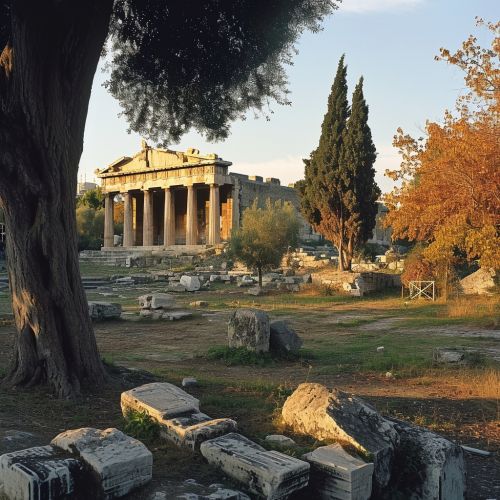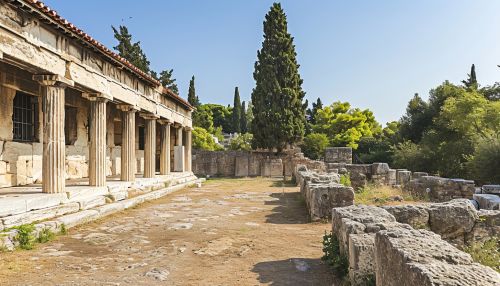History of democracy
Ancient Origins
The concept of democracy can be traced back to the ancient civilizations of Greece and India. The term democracy itself is derived from the Greek words "demos" (people) and "kratos" (power), signifying "rule by the people". The earliest known direct democracy is attributed to the 5th century BC city-state of Athens, where the male citizens participated in decision making directly, rather than through representatives.


In ancient India, a form of participatory governance known as the Mahajanapada existed. These were large-scale republics where decision-making was often carried out in assemblies known as 'Sabha' or 'Samiti'. The republic of Vaishali is one of the best examples of a early democratic society in India.
Evolution of Democracy
The evolution of democracy has been a gradual process, influenced by socio-political changes, philosophical ideologies, and the struggle for rights and freedoms. The Magna Carta, signed in 1215, is often considered a milestone in the evolution of democracy. It established the principle that everyone, including the king, was subject to the law.
During the Age of Enlightenment, political philosophers such as John Locke and Jean-Jacques Rousseau contributed significantly to democratic thought. Locke's ideas on consent of the governed and government's responsibility towards its citizens had a profound influence on modern democratic theory. Rousseau's concept of 'general will', where the collective will of the citizens directs the state, also shaped democratic ideologies.
Modern Democracy
The modern concept of democracy, characterized by universal suffrage and representative governance, emerged in the 19th and 20th centuries. The French Revolution played a crucial role in promoting democratic ideals of liberty, equality, and fraternity. The American Revolution led to the establishment of the United States as a democratic republic, with a constitution that emphasized checks and balances.
In the 20th century, the struggle for decolonization and civil rights led to the spread of democracy in many parts of the world. The Universal Declaration of Human Rights, adopted by the United Nations in 1948, affirmed the right to participate in government directly or through freely chosen representatives as a fundamental human right.
Types of Democracy
Democracy can be categorized into different types based on the nature of representation and the level of citizen participation. The two main types are direct democracy and representative democracy. In a direct democracy, citizens participate directly in decision making. In a representative democracy, citizens elect representatives to make decisions on their behalf.
Other types of democracy include participatory democracy, where citizens have more direct involvement in decision-making processes, and deliberative democracy, where decisions are made through deliberation and consensus.
Challenges and Criticisms
While democracy is widely accepted as a form of governance, it is not without its challenges and criticisms. Issues such as political corruption, inequality, and the tyranny of the majority are often associated with democratic systems. Critics also argue that democracy can lead to short-termism, populism, and a lack of political stability.
Despite these challenges, democracy continues to evolve and adapt, with ongoing debates about democratic reform and the role of technology in enhancing democratic processes.
